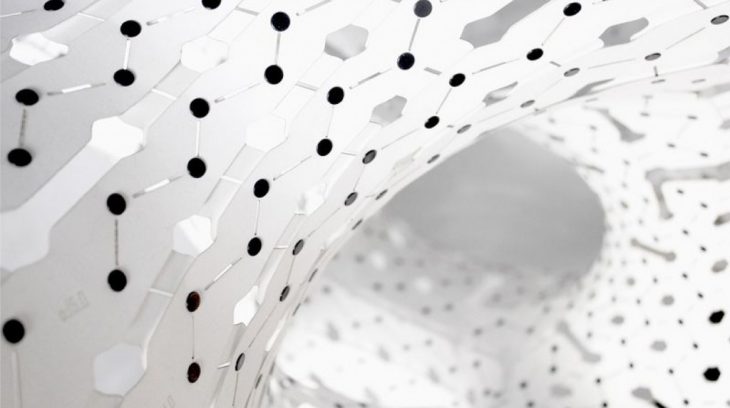COMPLEX FORMING
Faculty: Rodrigo Aguirre
“My hope is that light, flexible architecture might bring about a new and open society.” – Frei Otto
 Photo Credits: Pliant Bodies research project, Leighton Beaman
Photo Credits: Pliant Bodies research project, Leighton Beaman
High energy consumption buildings and building materials which often leave a high ecological footprint in order to achieve comfort, structural and formal stability. With the growth of urban areas, cities are becoming focal points for human life but unfortunately, they are not sustainable. So it is important to consider the consequences of human settlements on the health of ecosystems. Thanks to the latest technological advancements on environmentally friendly materials and advanced construction methods, we can optimise the ecological footprint of building construction. This can serve as an alternative that significantly reduces the use of non-renewable materials and high-mass structures.
“Complex Forming” is a research seminar that studies lightweight, low-mass and self supporting convoluted structures. Linking computational design and algorithmic methods, with advanced manufacturing protocols and assembly processes, this seminar explores the development of digital tectonics into structures that unify envelope, structure, form, and experience into a unique
system.
This seminar emerges to create an architectural context through the development of computational strategies, design processes and means of digital fabrication. Doing so, this investigation attempts to create a closer relationship between the designer, computer representation and matter.
Finally, the main objective of this seminar is the construction of thin-shell systems that push the limits of form, structure, and space.